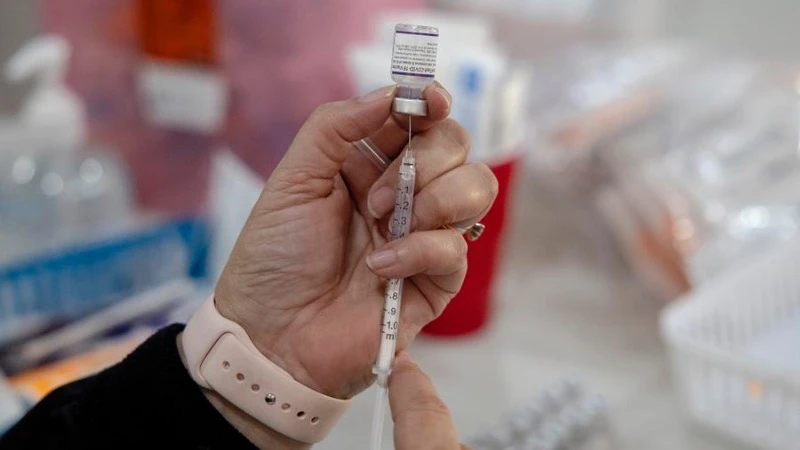
More and more people in the world are obese - Illustration: AI
Obesity is not only a cosmetic problem but also has the potential to lead to many diseases. Currently, new guidelines on obesity treatment from major health organizations such as the American Heart Association (AHA), the American Diabetes Association (ADA) and the World Health Organization (WHO) are regularly updated to help people have a more comprehensive view in controlling and treating this condition.
BMI 23 - 27.5 may be obese
Body mass index (BMI) - calculated by dividing weight (kg) by height squared (m), is still the main tool to determine obesity. However, it needs to be combined with other factors such as abdominal fat (waist circumference), body fat percentage, and medical history for a comprehensive assessment, specifically:
If the BMI is 30 or higher, it is considered obese, but for some ethnic groups such as Asians, a BMI of 23 - 27.5 may require attention and be considered overweight or obese.
In addition, assessing the risk of obesity-related diseases such as cardiovascular disease, type 2 diabetes, dyslipidemia, and high blood pressure is also important.
Weight loss is the primary goal in obesity treatment, however the specific amount of weight loss can vary from patient to patient.
Aiming for a 5–10% weight loss can have significant health benefits, including reducing the risk of cardiovascular disease, improving glycemic control in people with type 2 diabetes, and lowering blood pressure.
Long-term control is important, as obesity can recur if long-term lifestyle changes are not maintained.
How to treat obesity?
To treat obesity, a proper diet is needed, recommending eating foods rich in fiber (green vegetables, fruits, whole grains) and reducing calories from processed foods, foods high in sugar and saturated fat.
Calorie intake should be adjusted to suit each person's activity level. A low-calorie diet (about 1,200-1,500 calories per day for women and 1,500-1,800 calories for men) can help with weight loss.
The DASH (Dietary Approaches to Stop Hypertension) diet or the Mediterranean diet is also recommended for obese patients with comorbidities such as high blood pressure and diabetes.
In addition, regular exercise is needed. It is recommended that patients exercise at least 150 minutes per week at moderate intensity (such as brisk walking, cycling) or 75 minutes per week at vigorous intensity (jogging, swimming).
In addition, you should do muscle strengthening exercises at least two days a week to improve your body's strength and flexibility.
Along with behavioral changes, behavioral modification techniques such as specific goal setting, food intake tracking, and group support help patients stay motivated and manage eating and lifestyle habits.
Obesity management is a lifelong journey that combines proper nutrition, regular physical activity and sustainable behavior change.
Medication or surgical intervention should only be used when prescribed by a physician. With the support of the latest treatment guidelines, patients can gradually control their weight and improve their quality of life.
MSc. Dr. Nguyen Le Phuong Thao is a treating physician at the clinic department, Tam Duc Heart Hospital, with more than 10 years of experience in the field of cardiology.
In addition to specializing in the diagnosis and treatment of cardiovascular diseases such as valvular heart disease, coronary artery disease, arrhythmia, hypertension, and dyslipidemia, Dr. Thao is also proficient in modern echocardiographic techniques such as transthoracic echocardiography, transesophageal echocardiography, 3D echocardiography, etc.
Source: https://tuoitre.vn/chi-so-bmi-muc-nao-duoc-coi-la-beo-phi-20250409215723594.htm



![[Photo] Bustling construction at key national traffic construction sites](https://vstatic.vietnam.vn/vietnam/resource/IMAGE/2025/5/2/a99d56a8d6774aeab19bfccd372dc3e9)

















![[Photo] Binh Thuan organizes many special festivals on the occasion of April 30 and May 1](https://vstatic.vietnam.vn/vietnam/resource/IMAGE/2025/5/1/5180af1d979642468ef6a3a9755d8d51)

![[Photo] "Lovely" moments on the 30/4 holiday](https://vstatic.vietnam.vn/vietnam/resource/IMAGE/2025/5/1/26d5d698f36b498287397db9e2f9d16c)
















































![[Podcast]. April in the heart](https://vstatic.vietnam.vn/vietnam/resource/IMAGE/2025/5/2/9d4d85d863d74637977909e5f6ad4148)

















Comment (0)